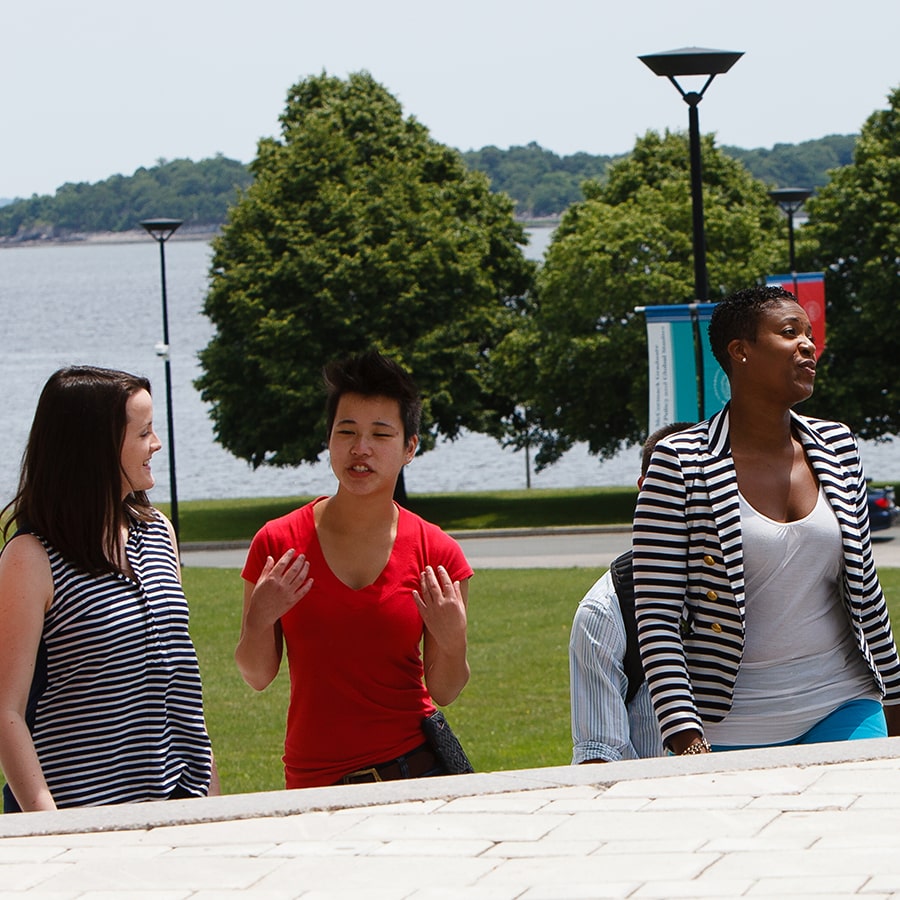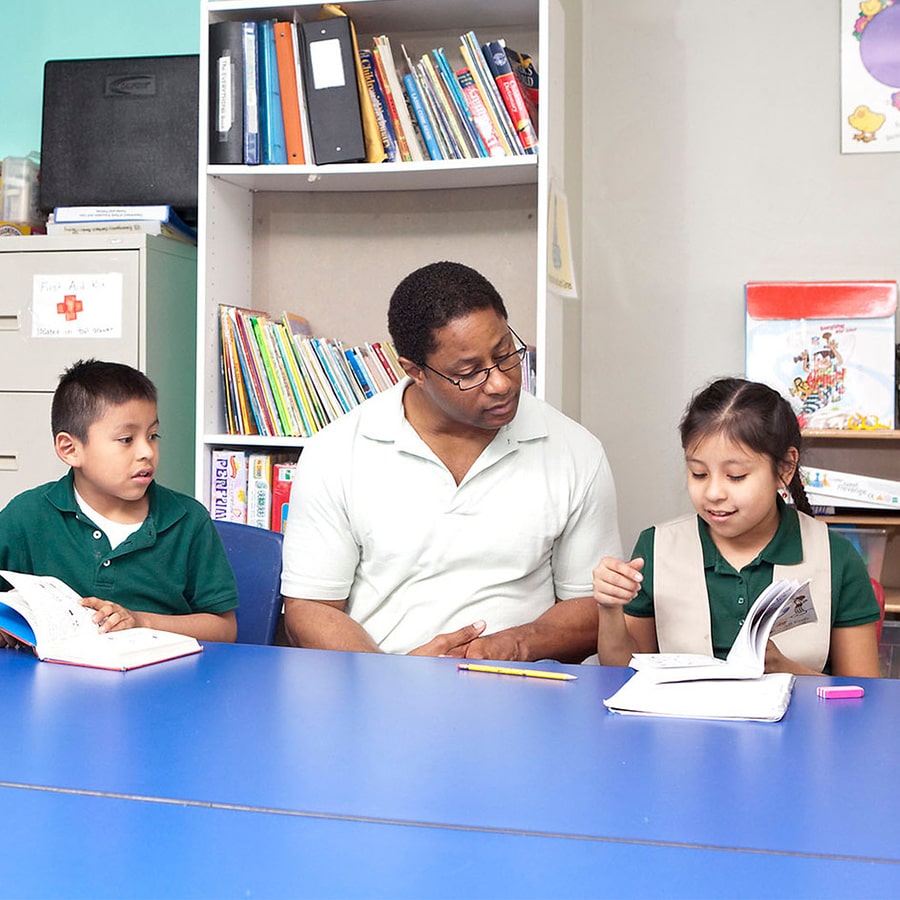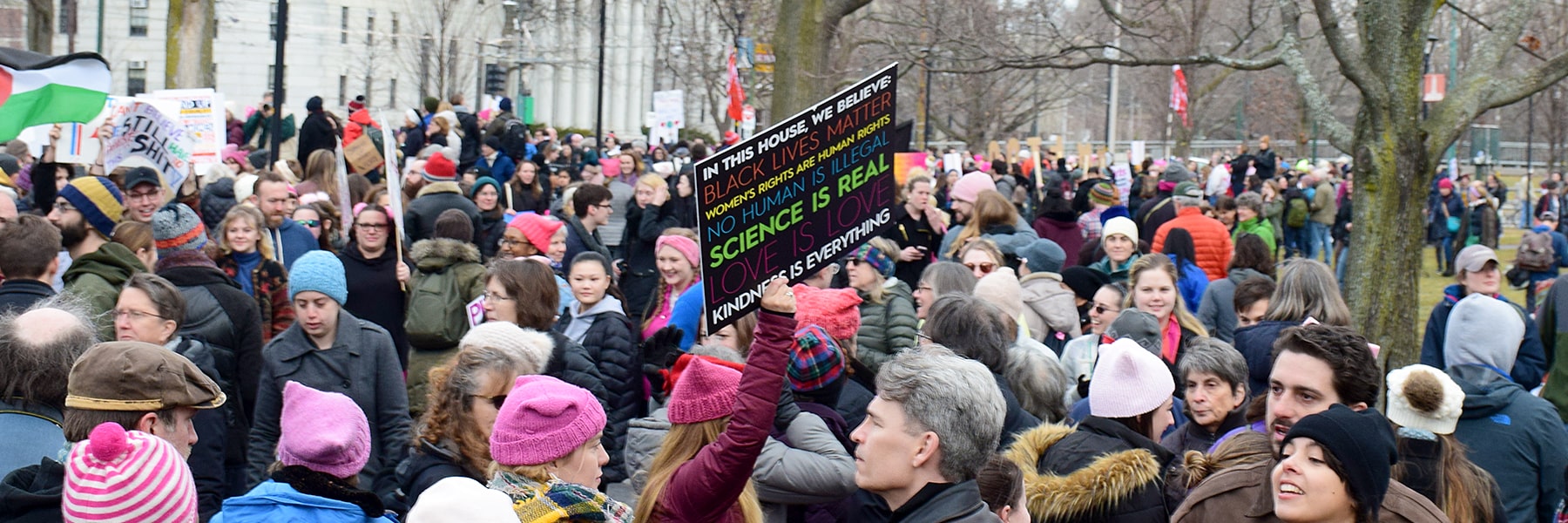Plan Your Education
How to Apply
Applicants must meet general graduate admission requirements in addition to the following program-specific requirements:
- Statement of purpose - Please discuss in 1,200 words or less your reasons for pursuing a graduate certificate in human rights, and your academic, personal, and professional goals.
- Transcripts - Official transcripts from all undergraduate and graduate institutions attended. Applicants must possess a four-year bachelor’s degree or equivalent from an accredited college or university, and must have a GPA of 2.75 or above.
- Letter of recommendation - This letter should come from someone who can speak to your academic and professional preparation for program success.
- Résumé or curriculum vitae - Please make sure all educational background and professional history is current with degrees earned, institutions attended, majors, and GPAs.
Deadlines & Cost
Deadlines: June 15 for fall, November 1 for spring
Application Fee: The nonrefundable application fee is $75. UMass Boston alumni and current students that plan to complete degree requirements prior to graduate enrollment can submit the application without paying the application fee.
Estimate Your Program Cost: Get a feel for your expected program costs using the Graduate Program Cost Calculator.
Program Cost Information: For more detailed information on costs, please visit the Bursar's website.
Curriculum
Core Courses (9 Credits)
- WGS 110 - Gender in Global Context 3 Credit(s)
or
ENGL 293L - Literature and Human Rights 3 Credit(s) - WGS 295L - Introduction to Human Rights 3 Credit(s)
- WGS 401 - Advanced Topics in Human Rights 3 Credit(s)
Electives (9 Credits)
Take three electives from the list below. At least two courses must be at the 300-level or higher.
- CINE 412L - Gender, Human Rights, and Global Cinema 3 Credit(s)
- ENGL 293L - Literature and Human Rights 3 Credit(s)
- HIST 346 - Women & Gender in African History 3 Credit(s)
- LABOR 315 - Labor, Community, and Social Justice Organizing 3 Credit(s)
- LABOR 335 - Globalization and Labor 3 Credit(s)
- LATAM 270 - Human Rights in Latin America 3 Credit(s)
- PHIL 450 - Rights 3 Credit(s)
- POLSCI 252 - Modern Political Thought (D) 3 Credit(s)
- POLSCI 265L - World War II Internment of Japanese Americans (A) 3 Credit(s)
- POLSCI 332 - Civil Liberties in the United States (A) 3 Credit(s)
- POLSCI 369 - Politics of the Middle East (C) 3 Credit(s)
- POLSCI 404 - The Politics of the Arab-Israeli Conflict 3 Credit(s)
- POLSCI 406 - Politics of Food Security 3 Credit(s)
- POLSCI 450 - Decolonial Theory 3 Credit(s)
- POLSCI 451 - Queer Theory & Politics 3 Credit(s)
- SOCIOL 230 - Race, Incarceration, and Deportation 3 Credit(s)
- WGS 268 - Global Bodies: Sex, Families, and Reproductive Rights in Transnational Perspective 3 Credit(s)
- WGS 270 - Native American Women in North America 3 Credit(s)
- WGS 345L - Gender, Religion, and Politics in South Asia 3 Credit(s)
- WGS 355L - Gender, Development, & Globalization 3 Credit(s)
- WGS 360 - Gender, Culture, and Power 3 Credit(s)
- WGS 412L - Gender, Human Rights, and Global Cinema 3 Credit(s)
- WGS 490 - Internship in Women's Studies 3 Credit(s)
- WGS 491 - Internship Placement 3 Credit(s)
For more information on curriculum, including course descriptions and degree requirements, visit the Academic Catalog.
Learning Outcomes
In this program, students will:
- Develop a deep understanding of social inequalities, power dynamics, and systems of oppression, enabling you to critically analyze and challenge structural barriers that hinder social inclusion and development
- Acquire advanced knowledge in the principles and practices of social development, intercultural communication, community engagement, and program evaluation, equipping you with the tools to design, implement, and assess inclusive social interventions
- Cultivate intercultural competence, ethical awareness, and collaboration skills, empowering you to work effectively with diverse populations, engage in cross-cultural dialogue, and promote sustainable and equitable social change
- Upon completion of their degrees, go on to serve as leaders in their communities, as well as in national and international nongovernmental organizations; local, regional, and national governments; and beyond.
Graduation Criteria
Complete 18 credits from six courses including three core courses and three electives.
Pass/fail:No more than one course taken pass/fail may be applied toward the minor.
Residency:At least three courses applied toward the minor must be completed at UMass Boston.
Contact
Graduate Program Director Kaitlyn Siner
kaitlyn.siner [@] umb.edu
(617) 287-3070

School for Global Inclusion & Social Development
Learn more about the faculty, research, and programs that make up our School for Global Inclusion & Social Development.
Explore School for Global Inclusion & Social Development
College of Education & Human Development
Learn more about the faculty, research, and programs that make up our College of Education & Human Development.
Explore College of Education & Human Development